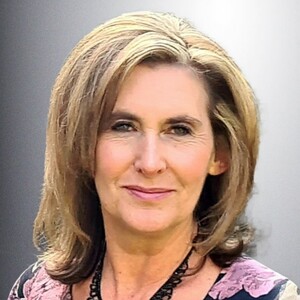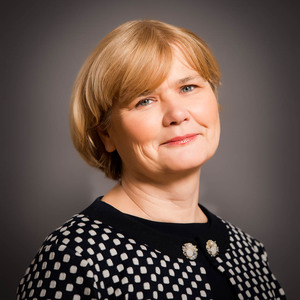Zoom Times: Is Your Recruitment Process On Hold Pending A Handshake?

Just six months ago, the idea of making a senior, mission-critical appointment without ever having met the candidate was unthinkable. In the first phase of the COVID pandemic, many assumed that recruitment would simply be put on hold until life returned to normal. But as borders remained closed and lockdown levels intensified, it rapidly became apparent that having a leadership gap, or muddling through with the wrong person, was simply not an option. At first, clients were sceptical – can you really get the measure of a person without that face-to-face alchemy generated by the lift of a brow or the shake of a hand?
The answer, it would appear is, yes. Not only is it possible, but there are a surprising number of benefits to online interviewing when it comes to senior placements. Notwithstanding the savings in terms of time and money of not having to move candidates around physically, virtual interviews tend to be more structured and more disciplined, resulting in better hiring decisions.
Karen Greenbaum, president and CEO of the Association of Executive Search and Leadership Consultants (AESC), of which AltoPartners is a global member, who has just made a key sales appointment, agrees: “Interestingly, you actually can have more focused conversations – it’s just you and the candidate on the screen.” In her search for the ideal leader for AESC’s Americas Region, Greenbaum describes a situation which has become increasingly commonplace around the world: a thorough screening and selection process that relied heavily on meticulous reference checks, followed by a two-hour telephonic discussion, and then a panel interview via Zoom with people in three countries, during which time the preferred candidate gave a presentation. Based on all those factors, the successful candidate was offered the position and she accepted. Her onboarding has been fully virtual too. “I still haven’t met her in person” says Greenbaum, who works remotely from Illinois to avoid the mandatory quarantine measures imposed on inter-state travel to and from New York.
It’s an experience echoed by AltoPartners around the world, from Sydney to Santiago.
“The process is a great deal more structured than in-person interviews, a factor largely attributable to the immediacy of video. There is a great deal less of small talk, so candidates – and clients – have to be prepped more rigorously and the producer (aka the executive search consultant) has to be present to do a sound check, conduct the introductions, check the camera angles, jump in if anyone veers seriously off script, cue the music at the end and then guide the reviews,” says Richard Sterling, Managing Partner AltoPartners Australia, who has divided digital end-to-end searches into three distinct phases: Before, During and After.
Read our Top Tips for Successful End-To-End Executive Recruitment Online here
Before
Prepare a detailed interview agenda in advance, including stipulating the order in which questions will be asked, and by whom, making sure to allocate every member of the committee a ‘speaking role’. Prepare the candidate – and the client – for any technical hitches and have an established Plan B in the event of lost connections, interface problems or interruptions.
Clients also have to ensure that their entire onboarding process has been migrated and adapted to digital, ideally before the candidate accepts the offer, says Karen Cook of SPI / AltoPartners South Africa. Where candidates are outside of local borders or cannot yet join the office environment, companies are making videos of the office and work surrounds, including messages and vox pops from their immediate team – in an attempt to woo top candidates and give them a better idea of the culture and environment they will eventually be working in.
When it comes to drawing up the shortlist, references are critical says Mario Mora of Equation Partners / AltoPartners Chile who recommends incorporating various assessment methods to test for everything from cultural fit to key competencies: “References have always been a central part of our work, but never have they been so important and relevant to the outcome as they are today.”
During
All partners surveyed agreed that one enormous upside to virtual recruitment is the additional time clients are prepared to invest in online interviews, and the fact that they attract a concentration of senior decision makers, which is not always possible given the logistics of face to face interviews.
But perhaps the main difference of a 100% online process is that it requires the search partner to be actively involved when the client interviews the candidates, which is rare in face to face meetings, says Eugenio Hernández of Seeliger y Conde / AltoPartners Spain, whose company closed the search for the Global Comp & Benefits Director for Tabacalera in one month during peak lockdown, and they subsequently joined the company on a mixed model, dividing their time equally between the office and home.
The level of executive coaching prior to the interviews is intense, with consultants prepping candidates on everything from lighting and background, and then making the introductions before switching off cameras and microphone and watching from afar. “From time to time, I will send a chat note to the candidate to remind them to look at the lens of their camera as this is as good as eye contact when using video conferencing. When the interview session finishes, I make myself visible again and spend time helping the client with an analysis of the interview. I do this with every interview. As no one is in the same room it is important to keep a focus on the substance of the interview and not be swayed by the absence of the interpersonal chemistry that a physical presence provides or the lack of body language or the various distortions caused by the equipment, the connection and so forth.’
“Similarly, candidates are not always able to confidently gauge how they were perceived and understood by the client. For this reason, the consultant needs to provide greater feedback and address those things that the candidate may have missed or misinterpreted because of the medium,” says Sterling.
After
Onboarding – traditionally the preserve of the hiring company – has become much more fluid and open-ended when it comes to the role of the executive search consultant, adds Mario Mora, whose experience of placing three senior hires in companies in Paraguay (CEO of Banco Regional) and Chile saw him take on the role of facilitator for the integration process which extended for several months after the successful placement of the candidate, including helping the new CEO to introduce herself to local regulators via Zoom.
Alicja Jaworska from Accord Group Poland / AltoPartners Poland agrees: “Onboarding is more complicated simply because the candidate has more questions – and these would ordinarily be answered over shared coffees with colleagues. Companies have to invest more time, have more patience, be prepared to answer more questions from new hires who have no chance to interact with their new teams and learn in a traditional way.”
The way of the future?
Not everyone is convinced though. Some clients are happy to do the entire search on a digital basis, but draw the line at signing on the dotted line until they’ve had a chance to meet in person, although this was more applicable to non-executive board appointments, which tended to lack the urgency of strategic or operational imperatives.
Jana Martinová of Accord Group Czech Republic / AltoPartners Czech Republic has her doubts: “Personally, I was astonished that my usually quite reliable memory could not recall individuals whom I met only over video conference”, making her wonder about the complexity of factors at play that contribute to that all-important gut feel about someone’s suitability for a specific role.
While it’s the exception, the potential for misalignment arises, especially on less concrete issues such as cultural fit. Kunal Ghosh of Accord India / AltoPartners India reports that while clients are happy to engage in a digital search process, they remain reticent about signing without meeting the person, sometimes waiting upward of 60 days to make an offer. “A significant amount of culture assimilation and team bonding happens through observation and social interaction between the individuals. Despite the additional care and facilitation, we did see instances where the new hire left the company due to a cultural/ personal value mismatch, which might have been avoided by an in-person meeting prior to the hire.”
One complicating factor was that search consultants have had to work a lot harder and rely on their reputation in the market to persuade candidates to consider making a change in a pandemic. Monika Bak of Accord Poland / AltoPartners Poland agrees: “Potential candidates are less open to new job opportunities as they feel more secure remaining in their current positions in these uncertain times, making it more important than ever that companies do a bit of soul searching and ensure that they are capable of attracting top talent”.

Karen Cook
Director AltoPartners Johannesburg
Mario Mora
Founding Partner AltoPartners Santiago

